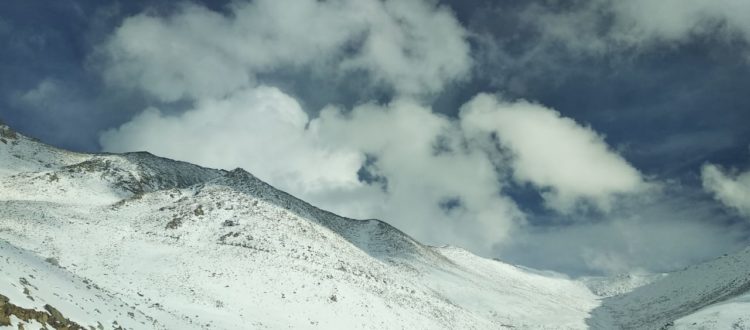Wildlife Trust of India conducts workshop on Prevention of Illegal Wildlife Trade in Ladakh
Leh, December 5, 2019: The land of high mountain passes, rarefied air and cold desert has seen a huge inflow of tourists since 2010. With new sources of livelihood for the local residents here, the increased inflow of people also brought in new challenges for wildlife conservation and pollution to the city.
Ladakh’s location on a strategic convergence point of old trade routes makes it easier for trade and transport of goods that also include wildlife articles. Local residents were unaware of the provisions of the Wildlife (Protection) Act, 1972 after the formation of Ladakh as a new Union Territory as it was under the Jammu & Kashmir Wildlife (Protection) Act, 1978. Moreover, Ladakh being a biodiversity hotspot has a lot of endemic flora and fauna which if not checked would disappear forever if illegal trade was not addressed. Understanding this situation, Wildlife Trust of India decided to bring all stakeholders together to undergo training and collaborate to reduce the gap that currently exists in the region.
[acx_slideshow name=”leh”]
WTI collaborated with Wildlife Department Ladakh and UNDP to conduct this multiagency workshop on Prevention of Illegal Wildlife Trade in Ladakh region. This was conducted under Government of India – UNDP – GEF SECURE Himalaya Project. Officers representing various government and enforcement agencies such as Wildlife Crime Control Bureau, Indian Army, Indo Tibetan Border Police, Police Department, Forest department etc. attended the event. Officers from key stakeholder agencies like Postal department, Airports Authority, Excise department etc. were also present along with representatives of local NGOs and media persons all braving freezing temperatures.
The participants were briefed on the wildlife crime scenario in the region by Sajid Sultan (Regional WLW, Ladakh) following which Preetpal Singh (CCF, Ladakh) emphasized the need of cooperation among various stakeholder agencies to combat wildlife crime. H.V. Girish (Regional Dy. Director WCCD, North Region) explained the working and functioning of WCCD and how interagency corporation can lead to successful interception on wildlife crime. The WTI team led by Jose Louies with Riyaz Ahmad and Marifatul Haq presented the findings of their study on the wildlife crime scenario in Ladakh.
A group activity session saw participants brainstorm on various ways to address the gap between working of various agencies as well as methods to efficiently combat wildlife crime in the region. After the discussion each group presented their key target points that needs to be addressed for the issue. The major points that came up were sensitization of staff from Indian Army, ITBP as well as capacity building of field staff from forest and wildlife department.
Chief Executive Councillor, Gyan P Wangyal concluded by emphasizing on the need for wildlife crime enforcement in the Ladakh region due to its unique and endemic flora and fauna. “Such workshops need to be conducted in future so as to combat and counter wildlife crime and illegal trade in the region,” he said.









